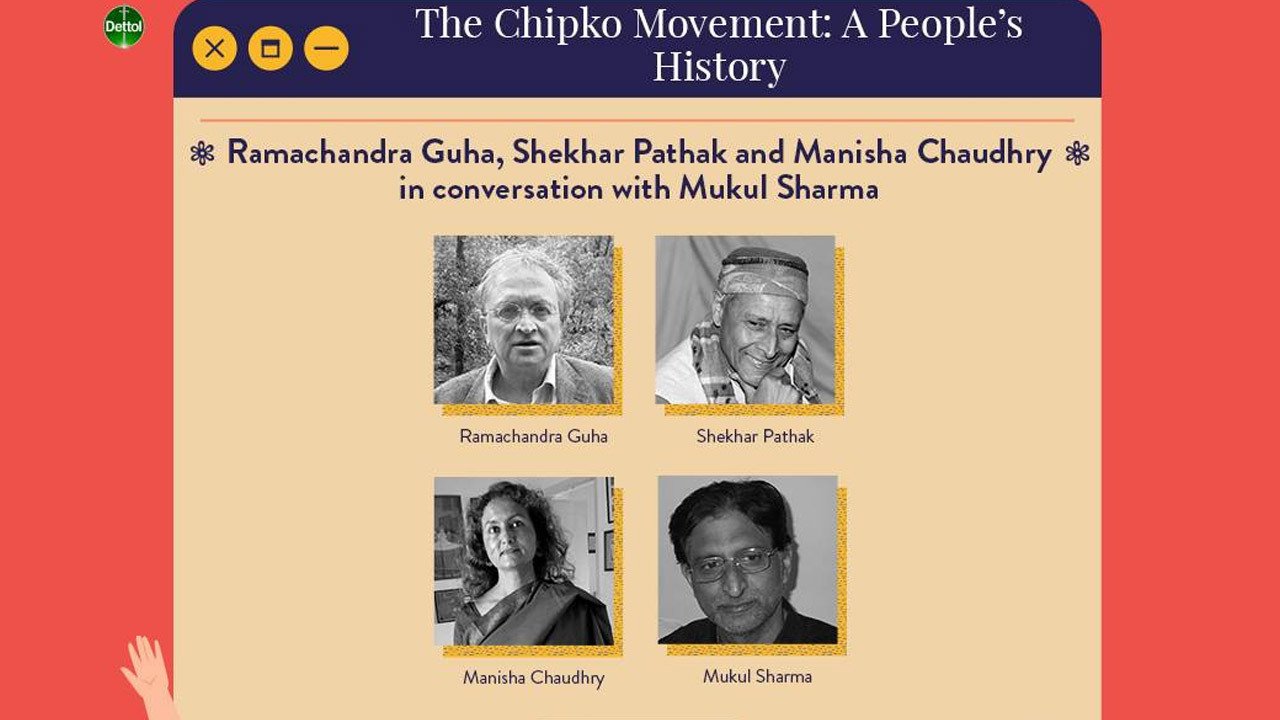
Jaipur Literature Festival had Ramachandra Guha, Shekhar Pathak and Manisha Chaudhry in conversation with Mukul Sharma on ‘The Chipko Movement – A People’s History’
The Jaipur Literature Festival 2021 hosted a session on Shekhar Pathak’s new book ‘Chipko – A People’s History’ that maps the journey of the people of Uttarakhand and a century of peaceful agitations to fight for the very survival of their habitat and their existence. The session featured Ramchandra Guha,historian and author of the book, Shekhar Pathak and Manisha Chaudhry in conversation with writer and journalist Mukul Sharma.
- Recent disasters: The session focused on recent natural disasters in Uttarakhand, including the floods in Nanda Devi Sanctuary in February 2021, tying it back to issues like deforestation and urbanization that have been rampant over the last few years.
2. Difficulties faced by villagers and local residents: Shekhar Pathak, spoke about the continued indifference from state and industry towards the clear and present danger. The session discussed difficulties faced by villagers and local residents whose livelihood and homes are in the areas that are frequently in the front line of rapacious deforestation, damming of rivers and cutting into mountains for roads.
Ram Guha’s introduction to the book showcased the respect he has for the dedication and scholarship of Pathak. Praising Pathak’s work, Ramachandra Guha says, “Pathak focuses on the ordinary, often unlettered, men, women and children who shaped the forest rights struggle.”
3. A panoply of agitation: Calling the century-long history of andolans in Uttarakhand “a panoply of agitations”, Guha talks of the 1940’s Salt Satyagraha in the hills to support the national Salt Satyagraha led by Gandhi, the Statehood movement for Uttarakhand and many more.
“In India, the modern environmental movement was inaugurated by a grassroots struggle, the Chipko Andolan, in 1973. Chipko attracted worldwide attention because of its innovative non-violent techniques of protest because it was led by Gandhians, because many of the participants were women, and because it took place in the Himalaya, a place of deep symbolic and spiritual significance” Guha said.
4. Reconnecting to Uttarakhand: Manisha Chaudhry, spoke about her translating this work, and how it helped her reconnect to Uttarakhand where she had spent her growing years. She spoke particularly about Pathak’s foregrounding the contribution of women which was so important, especially with her own engagement with feminism. Chaudhry’s final summation on Pathak is that of a master – Historian, Chronicler, Observer, Participant and Scholar.

